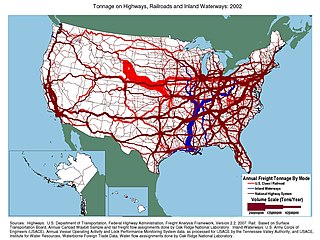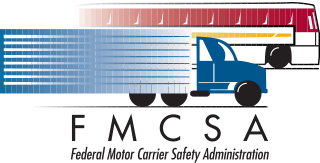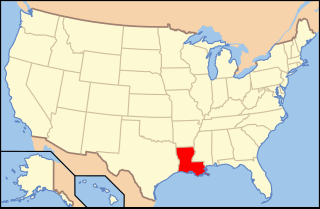Related Research Articles

A notary public of the common law is a public officer constituted by law to serve the public in non-contentious matters usually concerned with general financial transactions, estates, deeds, powers-of-attorney, and foreign and international business. A notary's main functions are to validate the signature of a person ; administer oaths and affirmations; take affidavits and statutory declarations, including from witnesses; authenticate the execution of certain classes of documents; take acknowledgments ; protest notes and bills of exchange; provide notice of foreign drafts; prepare marine or ship's protests in cases of damage; provide exemplifications and notarial copies; and, to perform certain other official acts depending on the jurisdiction. Such transactions are known as notarial acts, or more commonly, a notarizations. The term notary public only refers to common-law notaries and should not be confused with civil-law notaries.

Transportation in the United States is facilitated by road, air, rail, and waterways. The vast majority of passenger travel occurs by automobile for shorter distances, and airplane for longer distances. In descending order, most cargoes travel by railroad, truck, pipeline, or boat; air shipping is typically used only for perishables and premium express shipments. Transportation is the largest source of greenhouse gas emissions by the United States.

Certified Public Accountant (CPA) is the title of qualified accountants in numerous countries in the English-speaking world. It is generally equivalent to the title of chartered accountant in other English-speaking countries. In the United States, the CPA is a license to provide accounting services to the public. It is awarded by each of the 50 states for practice in that state. Additionally, all states except Hawaii have passed mobility laws to allow CPAs from other states to practice in their state. State licensing requirements vary, but the minimum standard requirements include passing the Uniform Certified Public Accountant Examination, 150 semester units of college education, and one year of accounting-related experience.

A public service is any service intended to address specific needs pertaining to the aggregate members of a community. Public services are available to people within a government jurisdiction as provided directly through public sector agencies or via public financing to private businesses or voluntary organizations. Other public services are undertaken on behalf of a government's residents or in the interest of its citizens. The term is associated with a social consensus that certain services should be available to all, regardless of income, physical ability or mental acuity. Examples of such services include the fire brigade, police, air force, and paramedics.

The Oregon Liquor and Cannabis Commission (OLCC), formerly known as Oregon Liquor Control Commission is a government agency of the U.S. state of Oregon. The OLCC was created by an act of the Oregon Legislative Assembly in 1933, days after the repeal of prohibition, as a means of providing control over the distribution, sales and consumption of alcoholic beverages. To this end, the agency was given the authority to regulate and license those who manufacture, sell or serve alcohol. Oregon is one of 18 alcoholic beverage control states that directly control the sales of alcoholic beverages in the United States. In 2014, the passage of Oregon Ballot Measure 91 (2014) legalized the recreational use of marijuana in Oregon and gave regulatory authority to the OLCC.

The United States Statutes at Large, commonly referred to as the Statutes at Large and abbreviated Stat., are an official record of Acts of Congress and concurrent resolutions passed by the United States Congress. Each act and resolution of Congress is originally published as a slip law, which is classified as either public law or private law (Pvt.L.), and designated and numbered accordingly. At the end of a Congressional session, the statutes enacted during that session are compiled into bound books, known as "session law" publications. The session law publication for U.S. Federal statutes is called the United States Statutes at Large. In that publication, the public laws and private laws are numbered and organized in chronological order. U.S. Federal statutes are published in a three-part process, consisting of slip laws, session laws, and codification.

Concealed carry, or carrying a concealed weapon (CCW), is the practice of carrying a weapon, either in proximity to or on one's person or in public places in a manner that hides or conceals the weapon's presence from the surrounding observers. The opposite of concealed carry is called open carry.

The Federal Motor Carrier Safety Administration (FMCSA) is an agency in the United States Department of Transportation that regulates the trucking industry in the United States. The primary mission of the FMCSA is to reduce crashes, injuries and fatalities involving large trucks and buses.

The Land Transportation Franchising and Regulatory Board is an agency of the Republic of the Philippines under the Department of Transportation (DOTr). The LTFRB was established on June 19, 1987, during the former president Corazon Aquino’s administration.
The Maryland Public Service Commission (PSC) is an independent administrative agency within the state government which regulates public utilities and certain taxi cab and other passenger services in Maryland. Similar to other state Public Utilities Commissions, the Maryland PSC regulates and sets tariff rates for natural gas, electricity distribution, local telephone, water, and sewage disposal companies. The PSC also sets the tariff rates for pilot services for vessels and privately owned toll bridges, approves the construction of electric generating plants and overhead transmission lines with a voltage above 69 kV, and licenses retail natural gas and electricity suppliers. The PSC offices are located in Baltimore in the William Donald Schaefer Building.
George W. Bush & Sons Co. v. Malloy, 267 U.S. 317 (1925), was a decision by the United States Supreme Court, which held that the state statute under which the Maryland Public Service Commission (PSC) issued certificates of public convenience and necessity to common carriers engaged in interstate commerce violated the Commerce Clause of the United States Constitution.

Lesbian, gay, bisexual, and transgender (LGBT) persons in the U.S. state of Louisiana may face some legal challenges not experienced by non-LGBT residents. Same-sex sexual activity is legal in Louisiana, and same-sex marriage has been recognized in the state since June 2015 as a result of the Supreme Court's decision in Obergefell v. Hodges.
United States v. Detroit & Cleveland Navigation Co., 326 U.S. 236 (1945), is a Supreme Court of the United States administrative law case holding that the Interstate Commerce Commission (ICC) had sufficient authority to order an expansion of automobile carrier capacity in anticipation of post-war demand.

Illinois is seen as one of the most progressive states in the United States in regard to lesbian, gay, bisexual and transgender (LGBT) rights and often viewed as one of the most liberal states in the Midwestern United States. Same-sex sexual activity has been legal since 1962, after Illinois became the first U.S. state to repeal its sodomy laws. Same-sex marriage was banned by statute in 1996, but has since been legalized after a law allowing such marriages was signed by Governor Pat Quinn on November 20, 2013 and went into effect on June 1, 2014. Civil unions have been recognized since 2011, and same-sex couples are also allowed to adopt. Additionally, discrimination on the basis of sexual orientation and gender identity is banned in employment, housing, credit and public accommodations, and conversion therapy on minors has been outlawed since 2016.
The Funding Act of 1790, the full title of which is An Act making provision for the [payment of the] Debt of the United States, was passed on August 4, 1790, by the United States Congress as part of the Compromise of 1790, to address the issue of funding of the domestic debt incurred by the state governments, first as Thirteen Colonies, then as states in rebellion, in independence, in Confederation, and finally as members of a single federal Union. By the Act the newly-inaugurated federal government under the U.S. Constitution assumed and thereby retired the debts of each of the individual colonies in rebellion and the bonded debts of the States in Confederation, which each state had individually and independently issued on its own "full faith and credit" when each of them was, in effect, an independent nation.

Gun laws in Illinois regulate the sale, possession, and use of firearms and ammunition in the state of Illinois in the United States.

Gun laws in New Jersey regulate the sale, possession, and use of firearms and ammunition in the U.S. state of New Jersey. New Jersey's firearms laws are among the most restrictive in the country.
National Institute of Family and Life Advocates v. Becerra, 585 U.S. ___ (2018), was a case before the Supreme Court of the United States addressing the constitutionality of California's FACT Act, which mandated that crisis pregnancy centers provide certain disclosures about state services. The law required that licensed centers post visible notices that other options for pregnancy, including abortion, are available from state-sponsored clinics. It also mandated that unlicensed centers post notice of their unlicensed status. The centers, typically run by Christian non-profit groups, challenged the act on the basis that it violated their free speech. After prior reviews in lower courts, the case was brought to the Supreme Court, asking "Whether the disclosures required by the California Reproductive FACT Act violate the protections set forth in the free speech clause of the First Amendment, applicable to the states through the Fourteenth Amendment."

Bernard L. McNamee is a government official who served as Commissioner of the Federal Energy Regulatory Commission from 2018 to 2020. McNamee was confirmed by the United States Senate as a member of the Federal Energy Regulatory Commission on December 6, 2018. He previously served in various state and federal legal and policy positions and practiced energy law in the private sector.
References
- ↑ "What is a Certificate of Public Convenience (CPC)?". Philippine Law Library.
- ↑ Jones, William K. (1979). "Origins of the Certificate of Public Convenience and Necessity: Developments in the States, 1870 - 1920". Columbia Law Review . 79 (3): 426–516. doi:10.2307/1121802. JSTOR 1121802.
- ↑ "CPCN: Certificate of Public Convenience and Necessity". New York State Public Service Commission . Retrieved 27 December 2014.
- ↑ "15 U.S. Code § 720a - Issuance of certificate of public convenience and necessity". Legal Information Institute . Retrieved 27 December 2014.
- ↑ "Illinois Compiled Statutes: Sec. 8-406. Certificate of public convenience and necessity". Illinois General Assembly . Retrieved 27 December 2014.